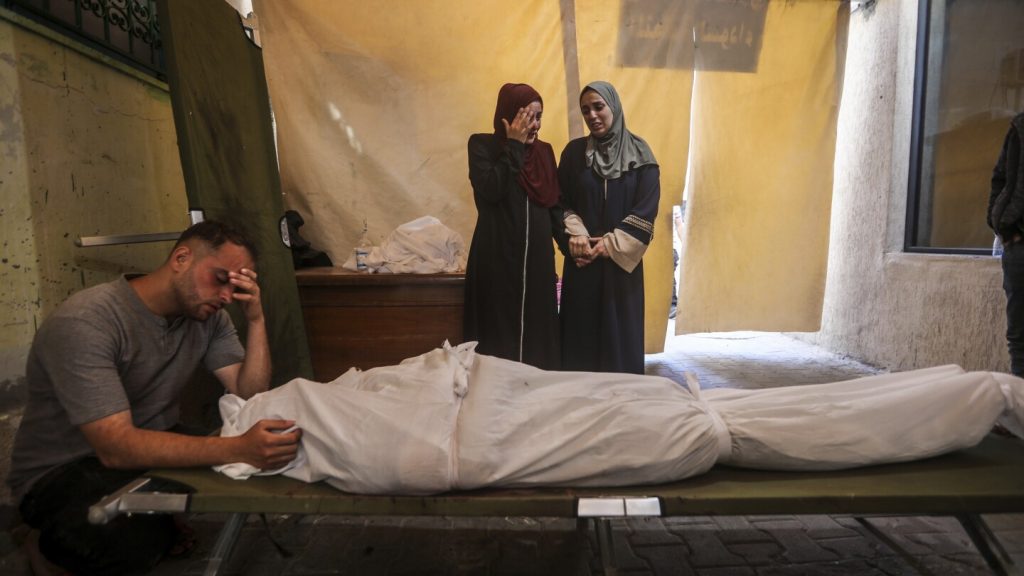Heavy fighting between Israeli troops and Palestinian militants on the outskirts of the southern Gaza city of Rafah has led to the displacement of over 110,000 people. Aid crossings have been rendered inaccessible, causing a critical shortage of food and supplies. The World Food Program is running out of food for distribution in southern Gaza, and fuel is also running low, impacting the operations of hospitals and aid delivery across the region. The United Nations and other agencies had warned that an Israeli assault on Rafah would have severe humanitarian consequences, with civilians bearing the brunt of the conflict.
The situation in Rafah has escalated with heavy fighting erupting in both the northern and southern parts of Gaza, further displacing residents and causing widespread fear and uncertainty. The United States has expressed opposition to a full-scale invasion by Israel and is withholding arms shipments as a form of pressure. Despite ongoing clashes, aid agencies and humanitarian workers are struggling to provide assistance to the increasing number of displaced people. Families have been forced to flee multiple times during the war, exacerbating the strain on already limited resources and infrastructure.
Israeli troops have taken control of the Rafah crossing with Egypt, disrupting crucial supply routes and leading to further shortages of essential goods in Gaza. While aid convoys have been entering through the Kerem Shalom crossing, the dangerous conditions created by the military incursion have hindered the delivery of aid on the Gaza side. Both sides are engaged in intense fighting, with Hamas launching attacks on Israeli forces near the Kerem Shalom crossing and Israel targeting militants in Rafah. The situation on the ground remains volatile, with conflicting reports from the opposing sides.
Hamas has continued to resist Israeli incursions, regrouping in different areas of Gaza despite repeated assaults by the Israeli military. The conflict has spread to other parts of the territory, including the northern Gaza Strip, where a significant number of people are facing famine. Israeli Prime Minister Benjamin Netanyahu has vowed to press ahead with the offensive, regardless of U.S. arms shipments, signaling a determination to dismantle Hamas’ military capabilities. The ongoing violence has taken a heavy toll on civilians, with thousands killed and a large portion of Gaza’s population displaced from their homes.
Efforts to broker a cease-fire and secure the release of hostages have been complicated by the escalation of the conflict in Rafah. Despite accepting a cease-fire proposal from Egypt and Qatar, Hamas’ demands for an end to the war and a full Israeli withdrawal from Gaza have not been met. Talks to resolve the conflict have so far been inconclusive, leaving the situation in Gaza unresolved. The conflict has devastated the region, with widespread destruction and a humanitarian crisis unfolding as aid agencies struggle to provide assistance to those in need.
The war in Gaza has resulted in a staggering number of casualties, including thousands of Palestinian fatalities and widespread displacement of the population. The destruction and loss caused by the conflict have left many communities in ruins, with little hope for a peaceful resolution in sight. The international community continues to call for an end to the violence and a lasting solution to the conflict, but the deep-rooted issues and ongoing hostilities in the region present significant challenges to achieving lasting peace. The plight of the people of Gaza remains a stark reminder of the devastating toll of war and the urgent need for humanitarian assistance in the region.















